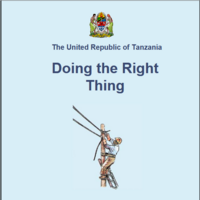Search
Books+
Searching 1,730 books
Search related to the career Executive Secretary
Responsibilities of an Executive Secretary:
1. Administrative Support: Providing high-level administrative support to executives by managing their schedules, appointments, and travel arrangements.
2. Communication: Handling incoming and outgoing communications, including phone calls, emails, and correspondence on behalf of executives.
3. Meeting Coordination: Scheduling and organizing meetings, conferences, and events, including preparing agendas, taking minutes, and distributing relevant documents.
4. Information Management: Maintaining and organizing executive files, records, and documents, ensuring confidentiality and easy retrieval.
5. Research and Analysis: Conducting research, compiling data, and preparing reports or presentations for executives to support decision-making processes.
6. Project Management: Assisting in the planning, coordination, and execution of various projects and initiatives undertaken by the executive team.
7. Relationship Management: Building and maintaining positive relationships with internal and external stakeholders, including clients, partners, and employees.
8. Expense Management: Monitoring and managing executive expenses, including budgeting, tracking, and processing reimbursements.
9. Office Operations: Overseeing general office operations, such as ordering supplies, maintaining equipment, and coordinating maintenance or repairs.
10. Confidentiality: Maintaining strict confidentiality of sensitive information and ensuring compliance with data protection regulations.
These responsibilities may vary depending on the organization and the specific requirements of the executive being supported.
Source: Various AI tools
Leadership
Books tagged leadership
Searched in English.













